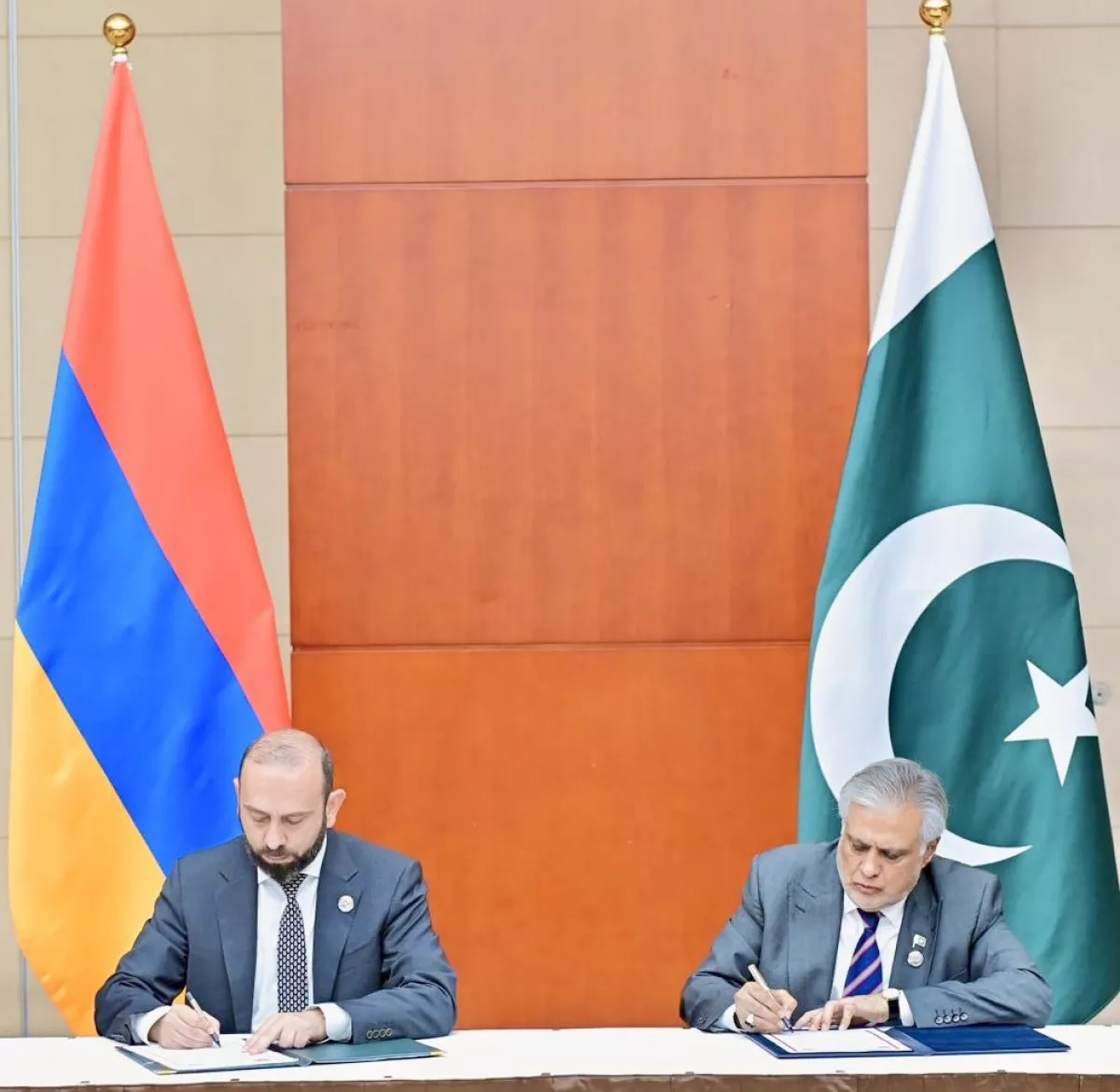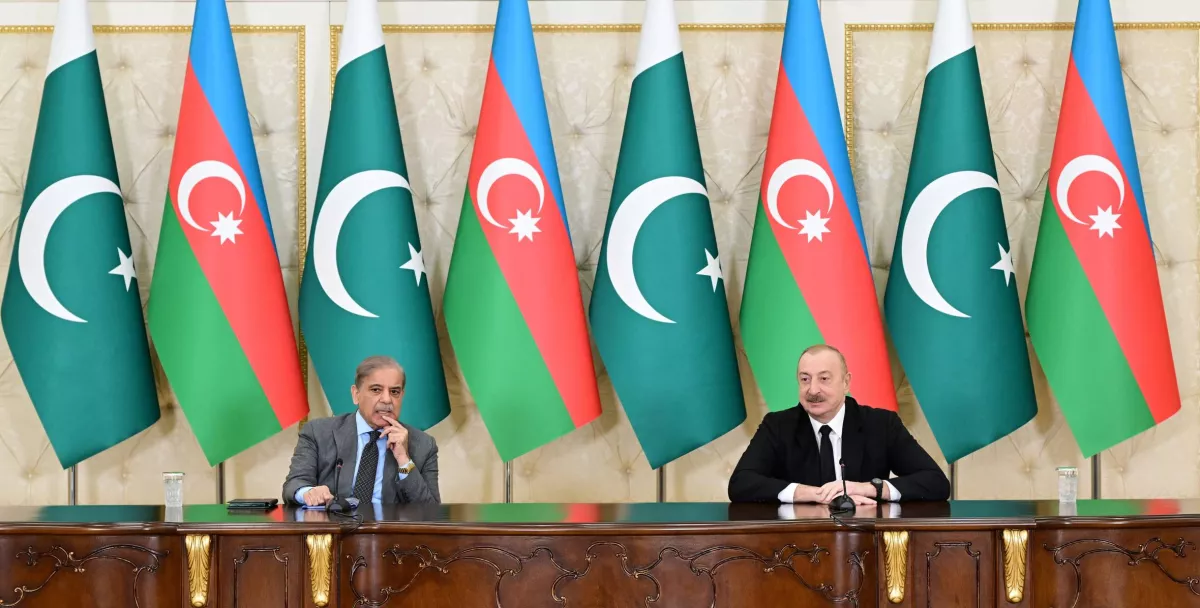Pakistan and Armenia: A step toward peace The SCO effect and the echo of Washington agreements
Almost all Armenian media eagerly referred to the social media page of Pakistan’s Foreign Minister, Ishaq Dar, where he announced the establishment of diplomatic relations between Pakistan and Armenia. According to him, he and his Armenian counterpart, Ararat Mirzoyan, signed a Joint Communiqué and exchanged it on the sidelines of the 25th SCO Summit in Tianjin, China. Dar clarified that both sides reaffirmed their commitment to the principles and purposes of the UN Charter, agreeing to cooperate in strengthening bilateral relations across various fields — including the economy, education, culture, and tourism.

The governments of Armenia and Pakistan also agreed to exchange representatives and provide each other with the necessary support to implement diplomatic relations on a reciprocal basis, in accordance with the 1961 Vienna Convention on Diplomatic Relations and established international practice.
This development has drawn analysts’ attention, as Pakistan had not recognised Armenia since the latter gained independence. The reasons for this are well known, but it is worth noting the comments of Muhammad Faheem (Riphah International University, Lahore, Pakistan). As he previously pointed out, many “are not aware of the fact that Pakistan does not recognize Armenia nor have any official diplomatic relations with her due to Pakistan’s principle stance over the [...] Karabakh issue.” It was also noted that during the First Karabakh War, Armenia occupied more than 20% of the internationally recognised territory of Azerbaijan.
Pakistan, maintaining fraternal and close relations with Azerbaijan, has always supported Baku’s position on restoring its territorial integrity and did not recognise Armenia as a sovereign state.
In turn, Azerbaijan has consistently supported Pakistan on the Kashmir issue, while Armenia, by refusing to withdraw its troops from internationally recognised Azerbaijani territories in accordance with UN Security Council resolutions, “supported Pakistan’s arch-enemy — India” as a diplomatic move against Islamabad.
It is worth recalling that Pakistan became the second country in the world (after Türkiye) to recognise Azerbaijan’s independence. In 2002, Baku and Islamabad signed an Agreement on Defence and Military Cooperation. Pakistan was also the first country to adopt a resolution condemning the Khojaly genocide: the country’s Senate recognised the tragedy as genocide in 2012. The following year, Azerbaijan participated in the AMAN-2013 naval exercises organised by Pakistan.
When news emerged in 2016 about Pakistan’s intention to sign a free trade agreement with the EAEU, the idea of a possible exchange gained traction: Armenia would not block Islamabad’s plans, and Pakistan would recognise Armenia.

At the time, Vladimir Lepekhin, Director of the EAEU Institute, explained that decisions are made by consensus, and as a member of the organisation, Armenia could “express its dissatisfaction with cooperation with Pakistan.” He also added: “Recognition of Armenia could be Pakistan’s trump card — we recognise your independence, and you create a favourable regime for the movement of export goods. This would make it easier for them to reach an agreement with the EAEU.” According to Lepekhin, “the Azerbaijani factor can be taken into account, but it will not be decisive, as Pakistan is primarily interested in the economy.”
But that was not the case — and could not have been, given Islamabad’s clear position on the South Caucasus. As a result, by 2017, Pakistan and Azerbaijan had already agreed on supplying defence industry products to Baku, as well as expanding trade, energy, and cultural ties.
The Islamabad Declaration, signed in 2021 by the foreign ministers of Azerbaijan, Pakistan, and Türkiye, aimed to strengthen cooperation in politics, economy, and security. It reaffirmed commitment to trilateral defence collaboration, including the exchange of advanced experience and technologies.
Thus, only after the peace agreement — incorporating all the principles voiced by Baku — was initialled by Azerbaijani President Ilham Aliyev and Armenian Prime Minister Nikol Pashinyan in the “world’s Office No. 1” did Pakistan begin considering the establishment of diplomatic relations with Armenia. This process also reflected the international framework of the Washington agreements, highlighted in part by Azerbaijan’s unequivocal leadership in the region. There is no doubt that Pakistan’s step was taken after consultations with Baku.

In this context, the words of President Ilham Aliyev at the beginning of 2025 come to mind, when he stated that Azerbaijan and Pakistan will continue to support each other on all matters of international relations, particularly regarding the protection of sovereignty and territorial integrity.
Therefore, Armenia should not violate the American agreements if it genuinely intends to shift from being an object of global politics to a subject of it.








